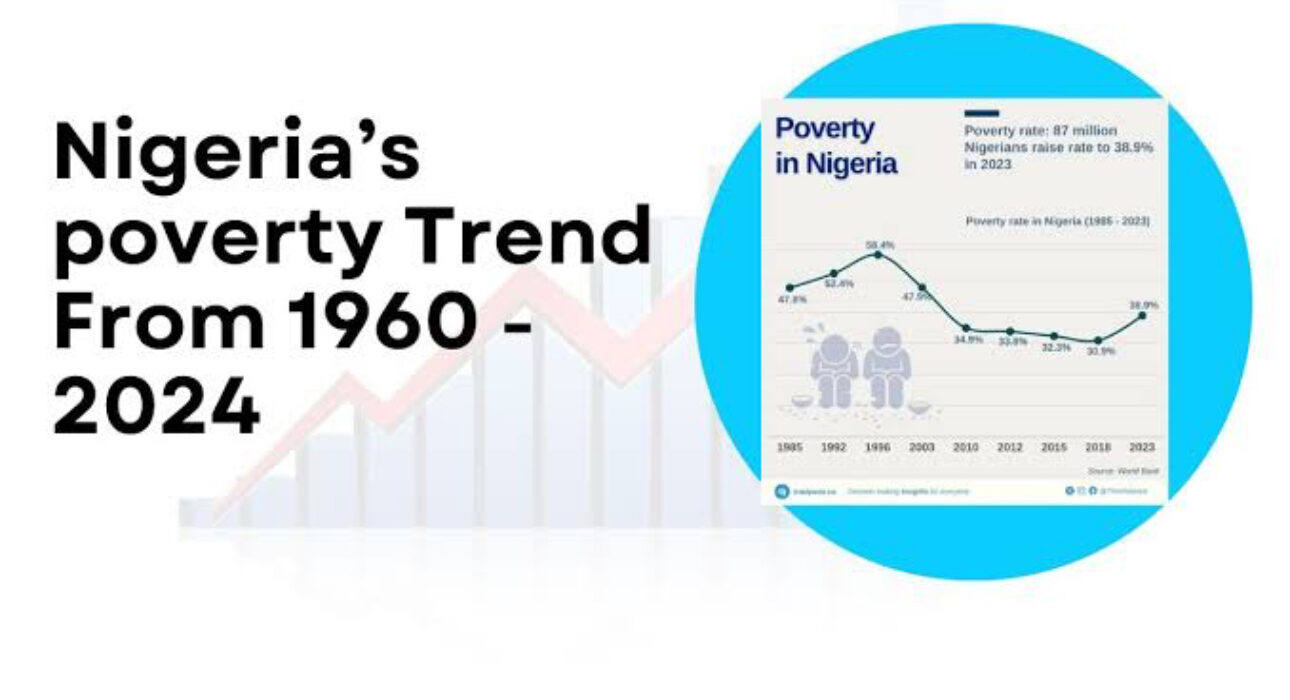25% of Nigerian Households at Risk of Poverty, Recent Data Indicates

Recent statistics reveal that, despite ongoing efforts to alleviate poverty in Nigeria, some states continue to experience significant economic challenges. The twelve states most affected, predominantly located in northern Nigeria, reflect long-standing socio-economic inequalities.
Data from the National Bureau of Statistics (NBS) and other development assessments highlight Sokoto and Taraba States, each reporting an alarming 87.7% poverty rate. This suggests that nearly 90% of households in these states live below or dangerously near the poverty line.
The full list of the twelve poorest states includes:
1. Sokoto – 87.7%
2. Taraba – 87.7%
3. Jigawa – 87.0%
4. Ebonyi – 79.8%
5. Adamawa – 75.4%
6. Zamfara – 74.0%
7. Yobe – 72.3%
8. Niger – 66.1%
9. Gombe – 62.3%
10. Bauchi – 61.5%
11. Enugu – 58.1%
12. Nasarawa – 57.3%
These statistics highlight a grim reality, particularly for the North-West and North-East geopolitical zones, which dominate the list. These regions are hindered by inadequate investment, insecurity, poor infrastructure, and educational challenges, all contributing to persistent poverty.
Ebonyi and Enugu are the only states from the South-East included in this ranking, with poverty rates of 79.8% and 58.1%, respectively. This indicates that while northern states are significantly affected, poverty is a widespread issue across the entire nation.
Poverty vulnerability extends beyond the current status and reflects the risk of households falling into poverty due to external shocks like rising food prices, job losses, natural disasters, or medical emergencies. Households facing this vulnerability typically lack sufficient income, savings, or support systems to withstand such shocks.
Experts warn that without targeted intervention, particularly in rural development, education, social welfare, and employment, the situation is likely to worsen, potentially pushing more families into extreme poverty.
“There is a need for tailored poverty reduction programs,” an analyst stated. “Generic policies will not effectively address the specific challenges each state faces. A more localized and focused strategy is essential.”
The government aims to enhance the National Social Investment Programme (NSIP) and broaden access to economic empowerment initiatives. However, the effectiveness of these programs has yet to be realized in the most impoverished areas.
As Nigeria strives to recover from economic disruptions caused by inflation, the removal of fuel subsidies, and currency adjustments, stakeholders emphasize that combating poverty must remain a key policy priority—especially in regions where the majority live in severe hardship with limited opportunities.







